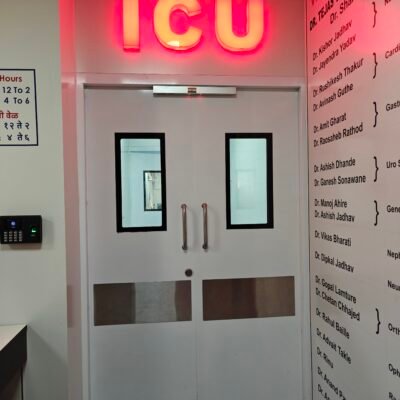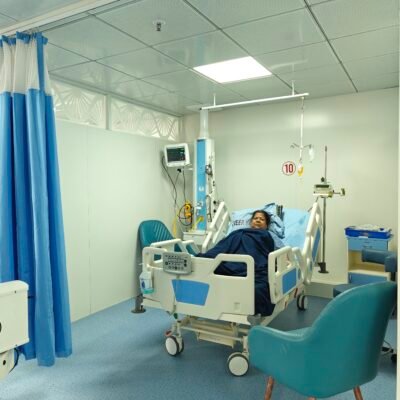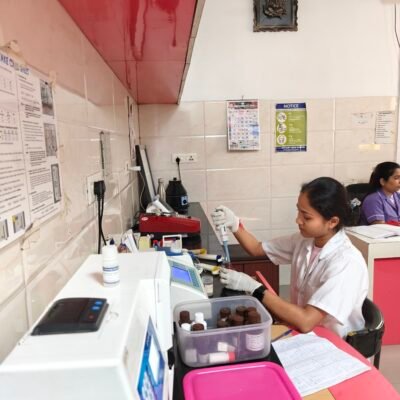Nurses and Nursing Care Services at Veer ICU Panvel
Nurses are integral members of the healthcare team, providing essential care and support to hospital patients. This abstract provides an overview of different categories of nurses at Veer ICU Panvel, highlighting their roles, responsibilities, and areas of expertise.
Understanding these categories is essential for healthcare professionals, policymakers, and individuals seeking nursing care.
OPD Nurse
OPD nurses at Veer ICU Panvel perform various tasks, including:
- Assessing patient needs
- Triaging patients
- Conducting preliminary examinations
- Assisting with diagnostic tests and medical procedures
- Administering medications
- Education of patients about their conditions and treatment plans
- Providing emotional support and counseling
In addition to patient care, OPD nurses contribute to efficiently managing the outpatient department by:
- Scheduling appointments
- Maintaining medical records
- Ensuring infection control practices
- Facilitating effective communication among patients, healthcare providers, and support staff
OPD nurses also play a crucial role in health education and preventive care, promoting healthy lifestyles and disease prevention within the community.
Ward or Staff Nurse
-
Staff nurses at Veer ICU Panvel form the largest group of nursing professionals. They are responsible for:
- Assessing patients’ conditions
- Planning appropriate care
- Implementing treatment plans
- Evaluating patient progress
Registered nurses (RNs) work in various healthcare settings, including hospitals, clinics, and community health centers. Their roles range from providing direct patient care to coordinating and managing healthcare teams.
As the first-level professional nurses in the hospital, staff nurses maintain a high level of professionalism in both appearance and communication. They are skilled in delivering expert bedside care and ensuring patient comfort.
Ward nurses also perform specialized technical duties in areas such as operation theaters, intensive care units, and high-dependency units. Additionally, they may take on supervisory responsibilities.
ICU Nurse
ICU nurses at Veer ICU Panvel undergo advanced education and training to provide specialized care for critically ill patients. Their role involves assisting in diagnosing conditions, delivering primary and specialized healthcare services, and collaborating with physicians across various medical specialities. In some cases, they may work independently to provide patient care.
ICU nurses possess a diverse skill set, including:
- Clinical expertise
- Critical thinking abilities
- Strong communication skills
- Deep empathy and compassion
They are trained to manage complex medical procedures, respond to emergencies, and provide end-of-life care while offering emotional support to both patients and their families.
These nurses establish meaningful therapeutic relationships, recognizing the importance of holistic care that encompasses not only physical health but also psychological, social, and cultural well-being. Beyond bedside care, they play a vital role in promoting health, preventing diseases, educating patients, and engaging in community outreach.
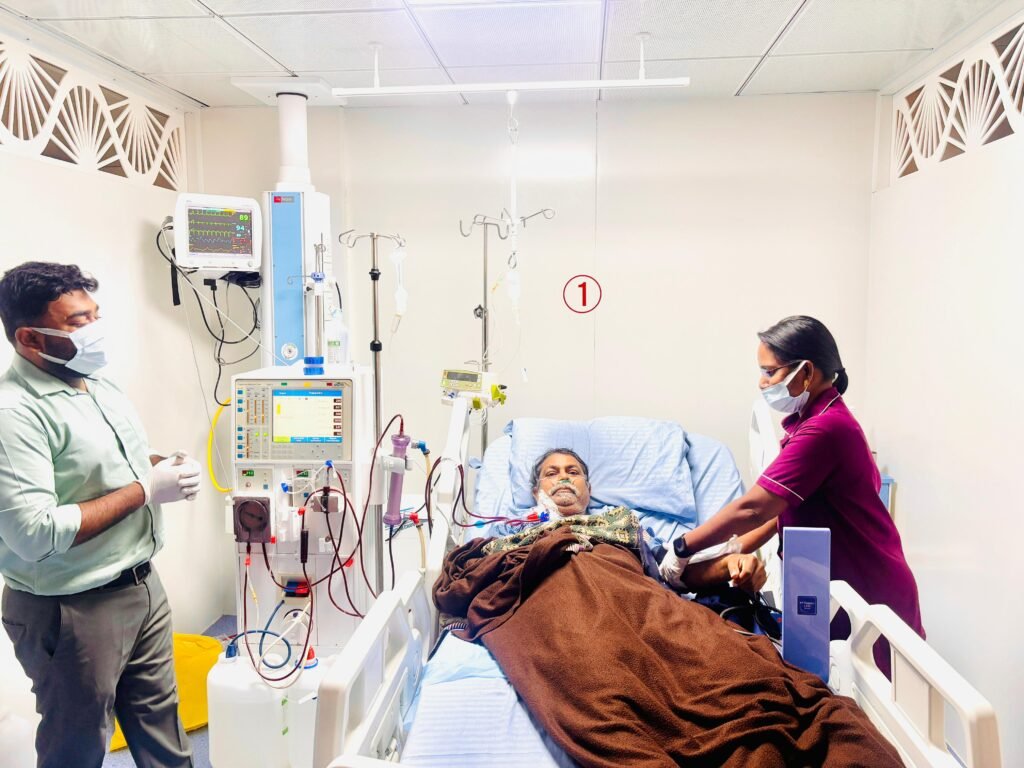
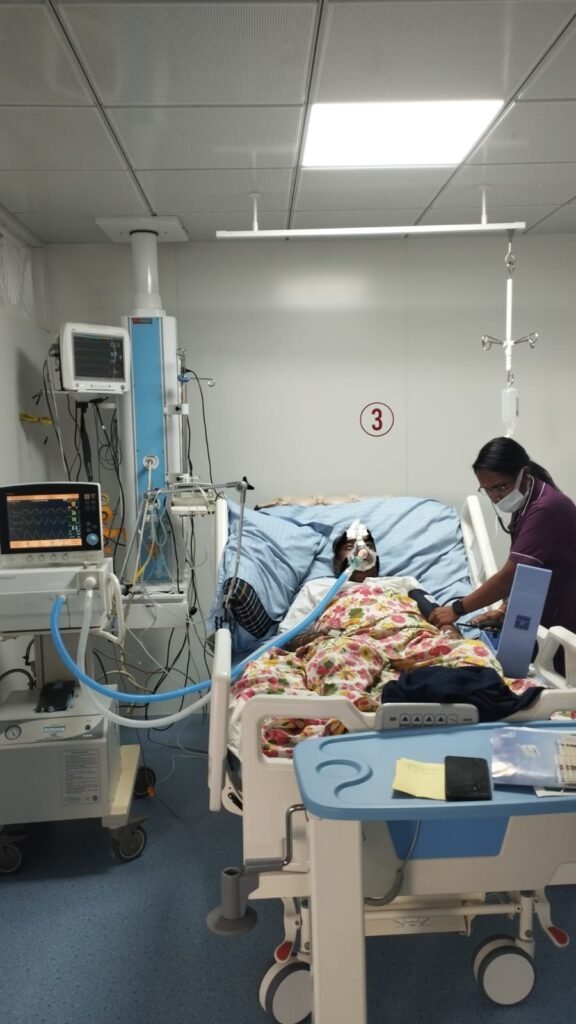
Operating Room Nurses
Operating room nurses at Veer ICU Panvel are responsible for ensuring a sterile and well-organized surgical environment. Their key duties include:
- Maintaining the sterility of the operating theater
- Arranging surgical supplies and equipment
- Preparing patients for surgery
They work closely with surgeons, anesthesiologists, and other medical professionals to set up and maintain optimal surgical conditions. During procedures, they assist the surgical team by:
- Providing necessary instruments
- Managing surgical equipment
- Anticipating and responding to the surgeons’ needs
Operating room nurses play a crucial role in ensuring smooth surgical procedures and patient safety.
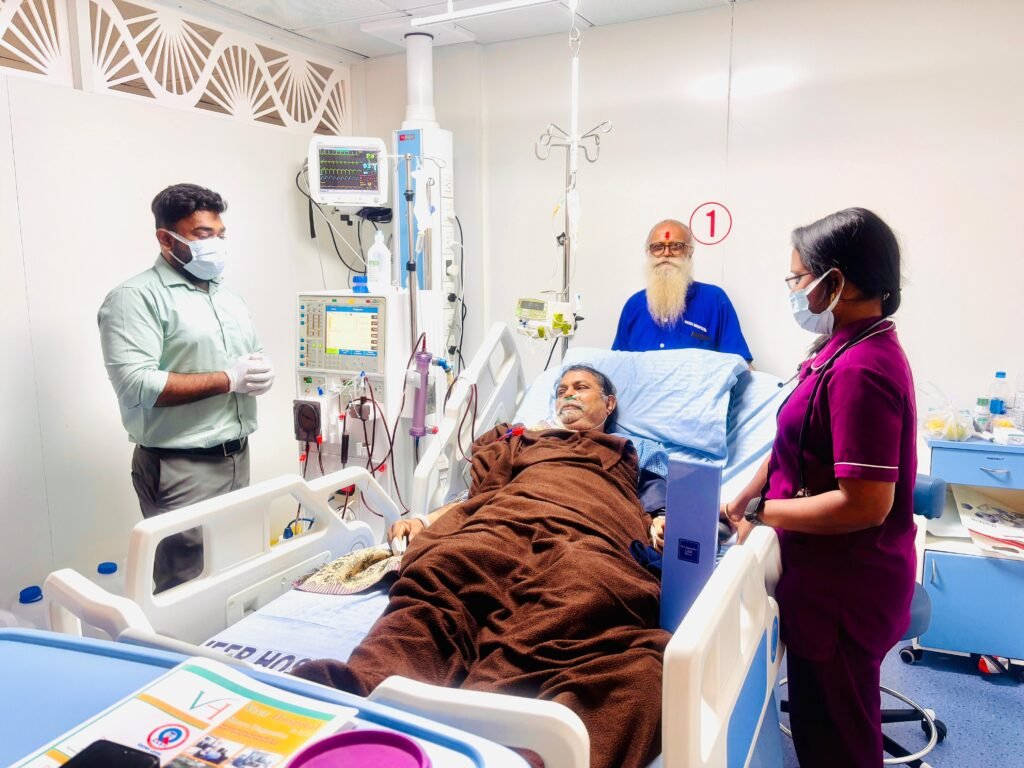

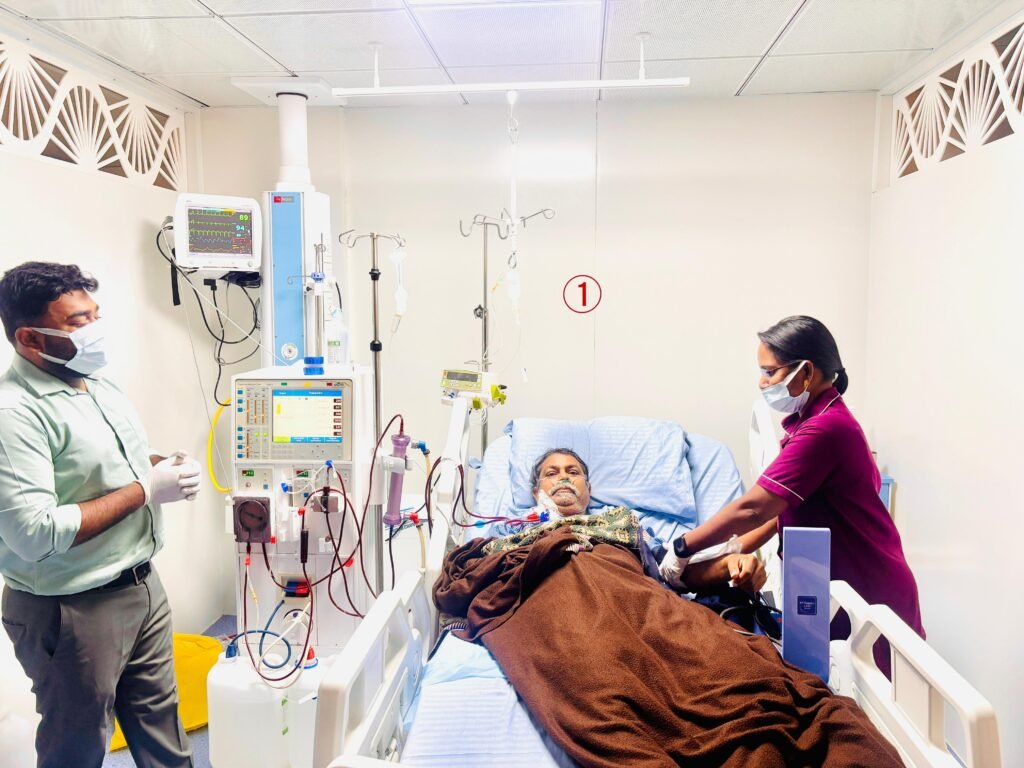
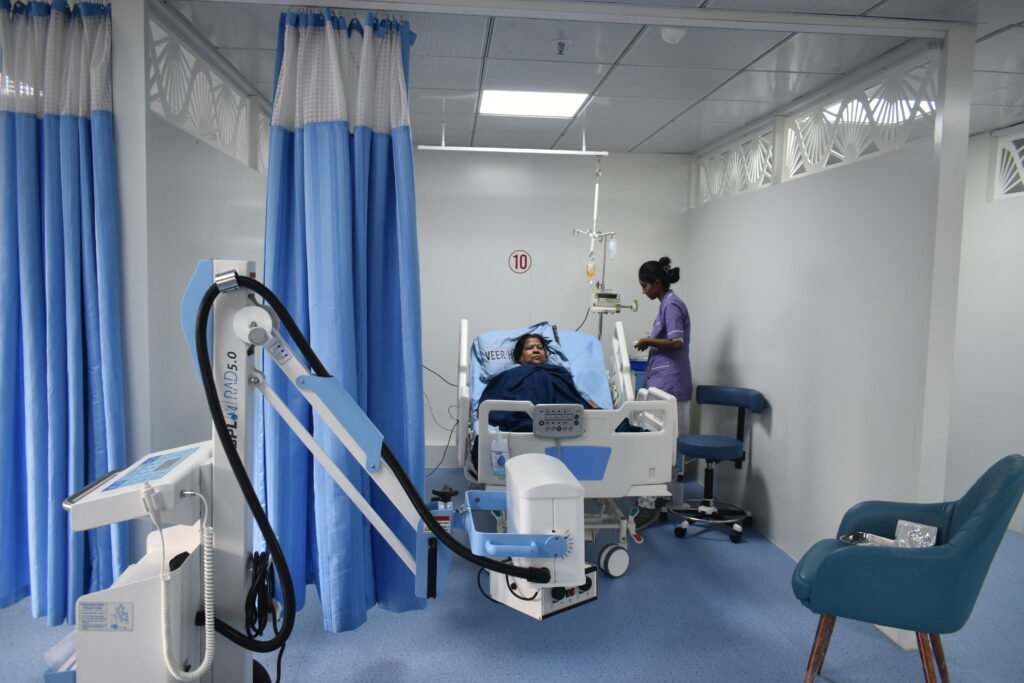
Chemo Nurse
A Chemo Nurse, also known as an Oncology Nurse or Chemotherapy Nurse, is a registered nurse specializing in the care of patients undergoing chemotherapy for cancer treatment. They work closely with oncologists and the healthcare team to ensure safe and effective treatment by:
- Administering chemotherapy drugs
- Monitoring patients during treatment
- Providing education, guidance, and emotional support
Key Responsibilities of a Chemo Nurse:
1. Patient Assessment:
Evaluating patients before treatment by reviewing their medical history, checking vital signs, and assessing overall health.
2. Chemotherapy Administration:
Safely preparing and administering chemotherapy medications, ensuring the correct dosage and protocols are followed.
3. Patient Monitoring:
Observing patients during and after treatment to detect any adverse reactions, complications, or side effects.
4. Symptom Management:
Helping patients manage chemotherapy-related side effects such as nausea, fatigue, and pain, and coordinating with the medical team for necessary interventions.
5. Emotional Support & Education:
Providing compassionate support to patients and their families, addressing concerns, and educating them about treatment plans, side effects, and self-care strategies.


Pain Nurse
A Pain Management Nurse is a specialized registered nurse dedicated to assessing, managing, and treating pain in patients. They work across various healthcare settings, including hospitals, clinics, and pain management centers, providing holistic care to individuals experiencing acute or chronic pain.
Role of a Pain Nurse:
Pain nurses collaborate with healthcare teams to:
- Develop personalized pain management plans
- Provide holistic care to enhance patients’ well-being
Key Responsibilities:
1. Pain Assessment:
Evaluating patients’ pain levels, understanding their experiences, and identifying contributing factors.
2. Pain Management Planning:
Creating tailored treatment strategies based on patient needs, incorporating both medical and non-medical approaches.
3. Medication Administration:
Administering pain relief medications safely and monitoring their effectiveness.
4. Non-Pharmacological Interventions:
Implementing alternative pain relief techniques such as physical therapy, relaxation methods, and lifestyle modifications.
5. Patient Education:
Educating patients and their families about pain management strategies, medication use, and coping techniques.
6. Collaborative Care:
Coordinating with doctors, physiotherapists, psychologists, and other healthcare professionals to ensure comprehensive care.
7. Advocacy and Support:
Acting as a patient advocate, ensuring individuals receive appropriate pain relief while addressing any concerns or emotional distress.
Wound Care Nurse
A Wound Care Nurse is a registered nurse with specialized training in assessing, treating, and managing wounds. They collaborate with healthcare teams to provide effective wound care and work in various healthcare settings, including:
- Hospitals
- Clinics
- Long-term care facilities
- Home healthcare services
Key Responsibilities of a Wound Care Nurse:
1. Wound Assessment:
Evaluating wound type, severity, and healing progress to determine the best course of treatment.
2. Treatment Planning:
Developing personalized wound care plans based on the patient’s condition and medical history.
3. Wound Dressing & Care:
Applying appropriate dressings, performing wound cleaning, and ensuring proper healing.
4. Infection Control:
Implementing strict hygiene protocols to prevent infections and complications.
5. Patient & Family Education:
Teaching patients and caregivers how to manage wounds, change dressings, and recognize signs of infection.
6. Collaboration & Consultation:
Working with doctors, surgeons, and physical therapists to ensure comprehensive wound management.
Nursing Incharge
A Nursing Incharge plays a vital role in ensuring smooth communication and coordination among healthcare professionals, including physicians, pharmacists, therapists, and other medical staff. Their primary goal is to oversee patient care and maintain high standards of safety and quality.
Key Responsibilities of a Nursing Incharge:
1. Interdisciplinary Collaboration:
Facilitating effective communication between healthcare teams to ensure comprehensive and coordinated patient care.
2. Quality Improvement Initiatives:
Implementing evidence-based practices, monitoring patient outcomes, and making improvements to enhance care quality and safety.
3. Patient Safety & Care Monitoring:
- Overseeing patient conditions and ensuring adherence to care protocols and hospital policies.
- Addressing concerns or issues that arise during the shift.
4. Leadership & Support:
Acting as a mentor and resource for nursing staff, offering guidance, support, and clinical expertise when needed.
Infection Control Nurse
An Infection Control Nurse is a specialized healthcare professional responsible for preventing and controlling infections within healthcare settings. They work closely with medical teams to develop and implement infection prevention protocols, ensuring a safe environment for patients, staff, and visitors.
Key Responsibilities of an Infection Control Nurse:
1. Infection Prevention & Policy Implementation:
- Establishing and enforcing infection control protocols based on evidence-based practices.
- Ensuring compliance with hospital hygiene and sanitation standards.
2. Surveillance & Data Analysis:
- Monitoring infectious disease outbreaks and analyzing trends.
- Recommending strategies to minimize infection risks.
3. Staff Training & Education:
- Conducting educational programs for healthcare workers on infection control practices.
- Providing guidance on proper hand hygiene, PPE use, and sterilization procedures.
4. Patient & Facility Safety:
- Identifying potential infection risks within healthcare facilities.
- Implementing preventive measures to ensure patient safety.
5. Collaboration with Healthcare Teams:
- Working alongside doctors, nurses, and administrative staff to enforce infection control measures.
- Assisting in outbreak investigations and response planning.
Nurse Educator
A Nurse Educator plays a crucial role in shaping the future of nursing by training and mentoring the next generation of healthcare professionals. They share their expertise, clinical experience, and research-based knowledge to ensure a highly skilled nursing workforce.
Key Responsibilities of a Nurse Educator:
1. Teaching & Training:
- Developing and delivering curriculums for nursing students and practicing nurses.
- Providing hands-on clinical training to enhance practical skills.
2. Research & Evidence-Based Practice:
- Conducting studies to improve healthcare practices and patient outcomes.
- Integrating evidence-based care into nursing education.
3. Policy & Leadership Development:
- Assisting in healthcare policy creation and workforce development.
- Shaping supportive environments for nursing staff within healthcare organizations.
4. Continuous Professional Development:
- Organizing workshops, seminars, and training programs for nursing staff.
- Encouraging lifelong learning and professional growth in the nursing field.

Nursing Superintendent
A Nursing Superintendent, also known as a Nursing Administrator or Chief Nursing Officer (CNO), is a senior-level nurse leader responsible for overseeing and managing the nursing department within a healthcare facility. They play a crucial role in ensuring high-quality patient care, nursing excellence, and effective healthcare operations.
Key Responsibilities of a Nursing Superintendent:
🔹 Ensuring High-Quality Patient Care – Overseeing nursing services to maintain superior patient care standards.
🔹 Coordinating Nursing Operations – Managing staffing, workflow, and nursing resources to enhance efficiency.
🔹 Setting Nursing Standards & Practices – Establishing protocols to ensure compliance with best practices and healthcare regulations.
🔹 Risk Management & Compliance – Monitoring adherence to safety regulations and infection control measures.
🔹 Staff Development & Training – Leading nursing education programs, mentorship, and continuous professional development.
🔹 Professional Advocacy – Representing nurses in hospital leadership meetings and policy development.
🔹 Strategic Leadership – Contributing to the hospital’s mission and long-term goals for patient care.
🔹 Collaboration & Communication – Working closely with physicians, administrators, and healthcare teams to optimize patient outcomes.
🔹 Quality Improvement & Patient Safety – Implementing initiatives to enhance patient safety, healthcare quality, and operational efficiency.
Qualifications & Skills
A Nursing Superintendent typically holds advanced nursing degrees (Master’s or Doctorate) and extensive experience in nursing leadership. They possess:
✔ Strong leadership and management skills
✔ Effective communication and interpersonal abilities
✔ Expertise in healthcare policies and hospital administration
✔ Ability to inspire and motivate the nursing team
By driving nursing excellence and operational success, a Nursing Superintendent plays a pivotal role in shaping healthcare outcomes and ensuring efficient, high-quality patient care delivery.
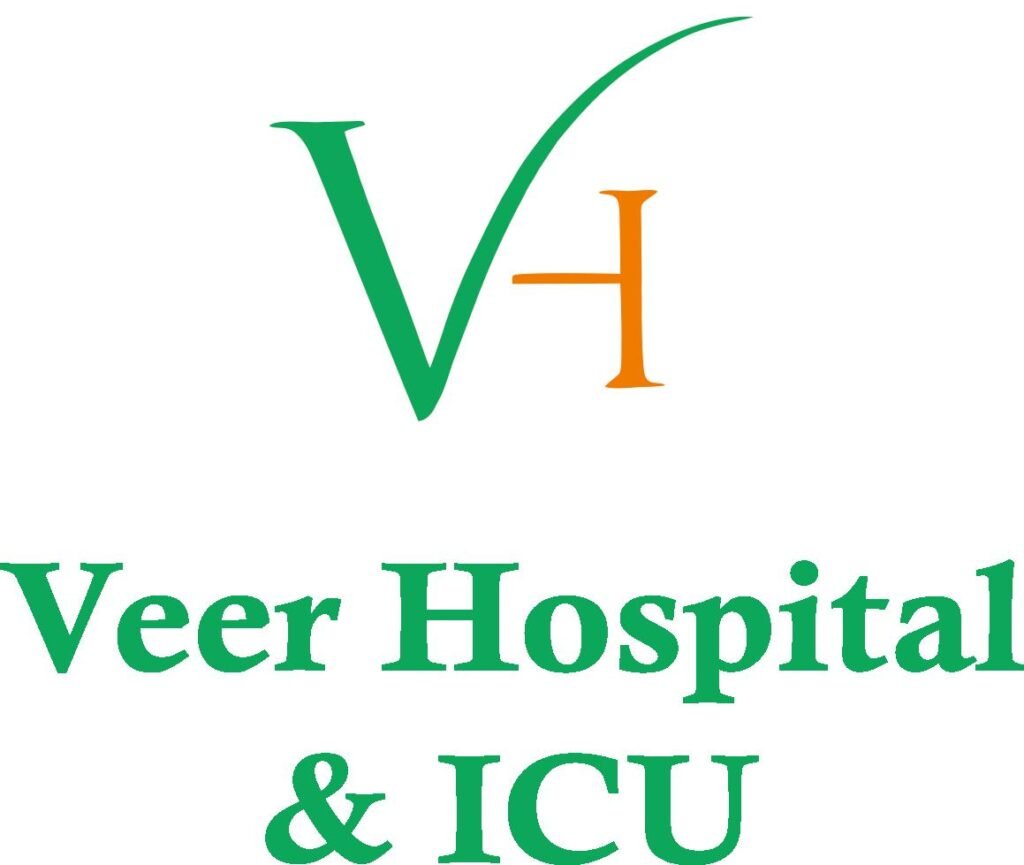
Conclusion
Nurses are the backbone of healthcare, playing a vital role in ensuring patient well-being through their compassion, expertise, and dedication. They provide holistic care, promote health and wellness, and advocate for both individuals and communities.
With diverse clinical skills, critical thinking abilities, and strong communication, nurses work collaboratively within interdisciplinary teams to deliver high-quality care and improve patient outcomes.
Whether in hospitals, clinics, long-term care facilities, or community settings, nurses remain at the forefront of healthcare, making a profound impact across all stages of life. Their unwavering commitment ensures better healthcare experiences and healthier communities worldwide.
 Welcome veer hospital and doctors appoinment services
Welcome veer hospital and doctors appoinment services
